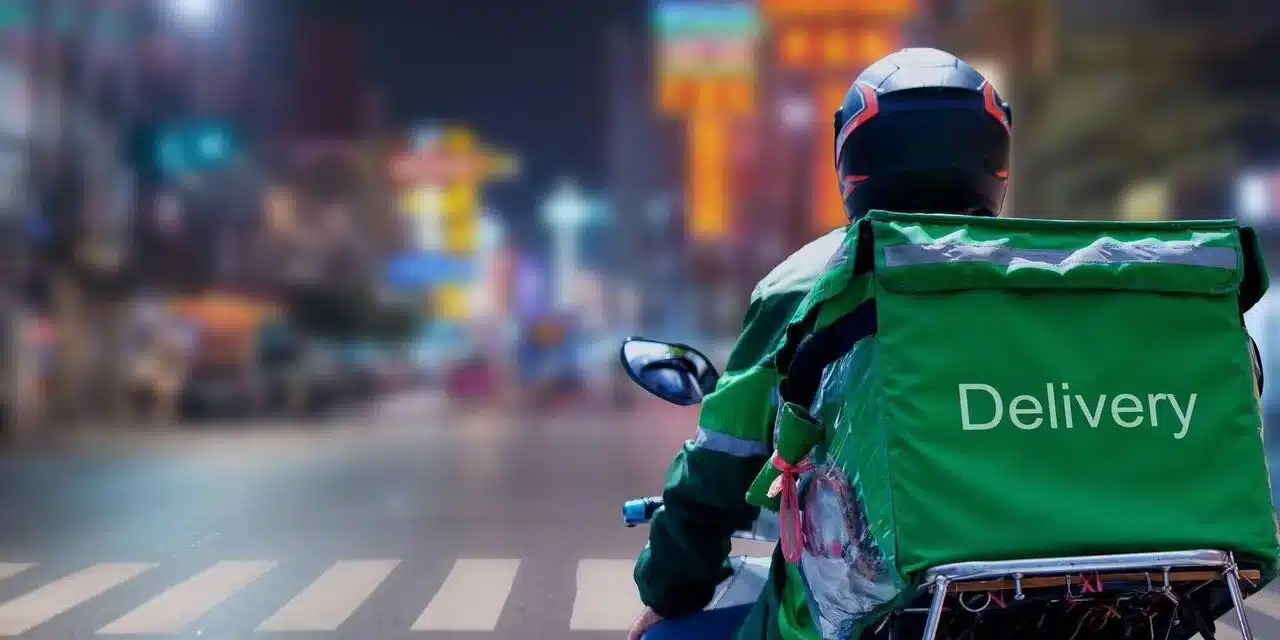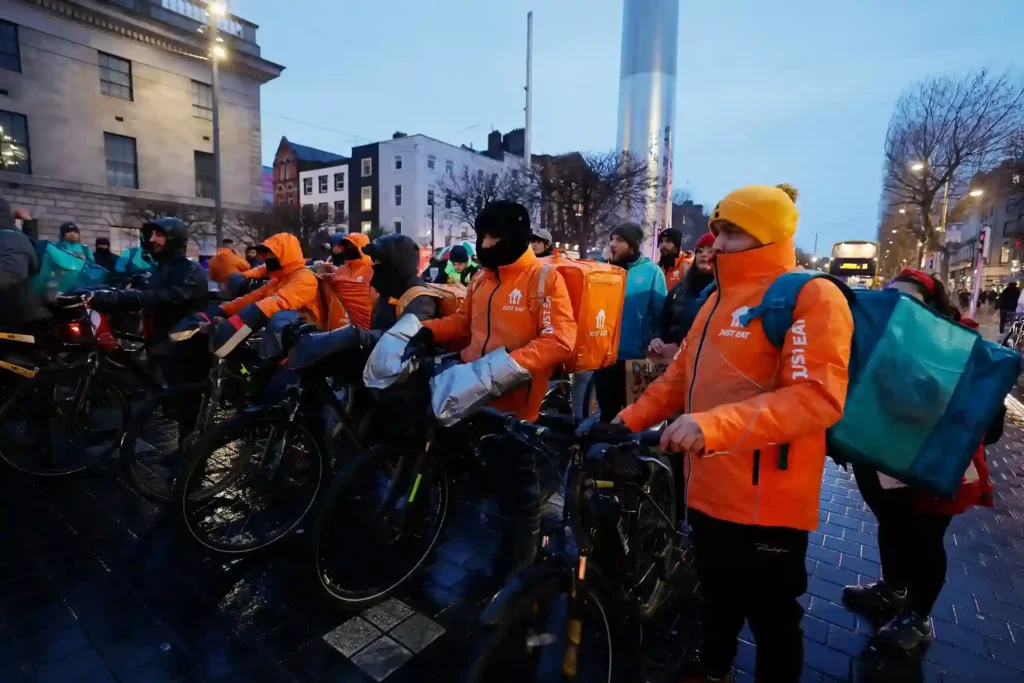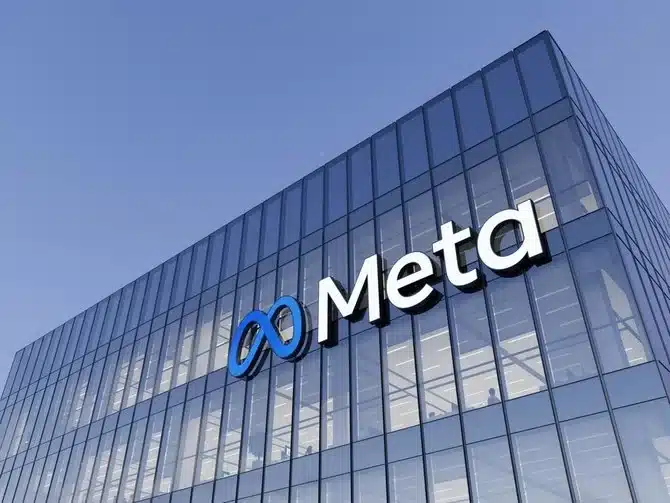Dublin & Cork Food Delivery Worker Protest against Low Wages

On February 14th, love was in the air, but so was tension as food delivery worker in Dublin and Cork went on strike, targeting the busy Valentine’s Day evening.
(Also read Controversy Erupts Over Harbour Court’s Proposed Makeover.)
Yesterday’s Valentine’s Day strike by food delivery workers fizzled out with mixed reactions from companies and the public. While the action didn’t significantly impact deliveries, it highlighted ongoing concerns about pay and working conditions in the gig economy.
Food Delivery Worker Demand Fair Pay
The strike, lasting from 5 pm to 10 pm, was organised by the English Language Students’ Union of Ireland (ELSU) and saw delivery workers across platforms like Deliveroo, Uber Eats, and Just Eat switch off their apps. They claimed a significant drop in minimum pay per delivery, from €4.29 in 2019 to as low as €1 in some cases.
Many workers expressed dissatisfaction with the current pay structure and the lack of basic rights and protections afforded them as independent contractors.

While platforms like Just Eat, Deliveroo, and Uber Eats acknowledged the concerns and emphasised their efforts to provide flexibility and earning opportunities, workers like Felipe Pessoa, a Cork-based driver, countered their claims. “€2.90 for a delivery, even if it’s over 2 kilometres? It’s unfair,” he stated, highlighting long working hours and minimal pay.
Other workers echoed similar concerns, including Lucas, who works over 90 hours weekly with no days off and receives the same €2.90 payment for long journeys.
The strike garnered support from People Before Profit TD Mick Barry, who condemned the “ridiculously low” wages, even as low as €1 per delivery. He urged the public to boycott delivery platforms like Deliveroo, Just Eat, and Uber Eats in solidarity with the workers on Valentine’s Day.
Nonetheless, the Restaurants Association of Ireland (RAI) expressed concerns in relation to the strike. Adrian Cummins, the CEO, voiced concerns on the effect on companies, especially those that depend significantly on deliveries. He questioned why workers wouldn’t seek other jobs if they were unhappy, considering the current labour shortage.
While platforms like Just Eat claimed no prior knowledge of the concerns and emphasised open communication channels, workers felt unheard. Deliveroo maintained its commitment to flexibility and attractive earning opportunities, indicating high rider retention rates.
Whether this protest sparks significant changes remains to be seen, but it has undoubtedly brought the issue of delivery worker rights to the forefront of public discourse. As consumer awareness and pressure grow, the gig economy’s future and its workers hangs in the balance.
LATEST NEWS
DISCOVER MORE






